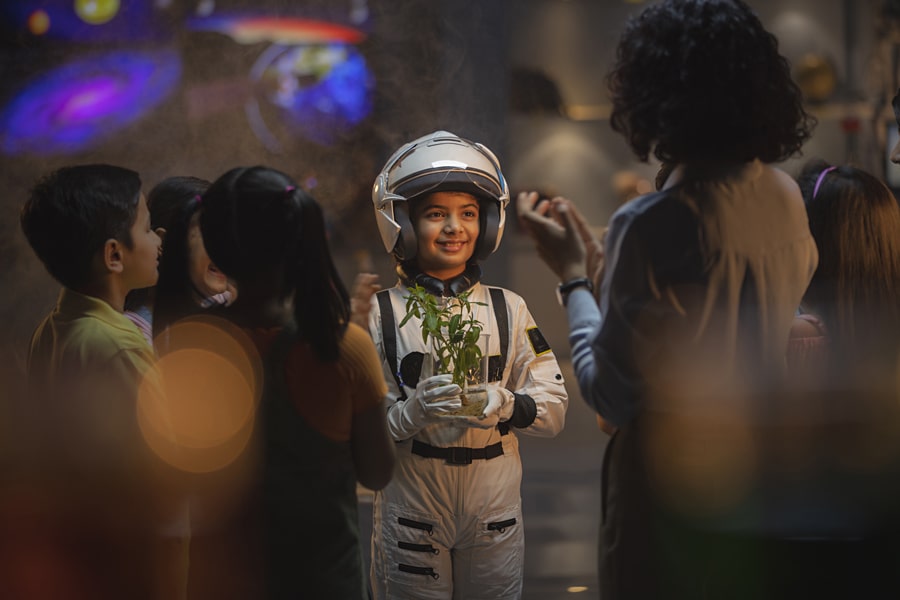Imagine growing up in a family where no one has ever gone to college. You have big dreams, but the path to achieving them seems uncertain. This is the reality for millions of first-generation learners in India. But with the right support and guidance, these students become capable of breaking barriers and achieving their full potential. At Pifinity Education Foundation, we’re always committed to supporting these students with the tools and resources they need to succeed.
We believe that education is the best means for promoting social justice and equality. India has made significant progress towards promoting this, with school enrolment figures rising substantially over the past two decades. According to the Annual Status of Education Report 2023: Beyond Basics, 86.8% of 14-18 year-olds are attending educational institutions, showcasing the government’s commitment to universalizing secondary education. Compared to the data from ASER 2017, the proportion of youth not currently enrolled is lower in 2023.
Despite these advancements, first-generation learners—those from households with no tradition of formal education—face unique and persistent challenges. Through this blog, we’ll try to understand the multi-faceted challenges faced by these learners.
Challenges Faced by First-Generation Learners
Lack of Career Awareness and Exposure: First-generation learners, often from non-academic backgrounds, struggle to explore diverse career paths beyond traditional options, like medicine or engineering. Limited exposure stifles their ambitions and restricts career choices. The proportion of out-of-school children and youth rises with age, from 3.9% among 14-year-olds to 10.9% among 16-year-olds, and a whopping 32.6% among 18-year-olds. This clearly shows the challenge of keeping older students engaged in the education system. Providing career guidance for students and opening their eyes to a multitude of career options, could be the key to retaining these older students, whose idea of education is often limited by traditional career paths.
Insufficient Emphasis on 21st-Century Skills: Unlike progressive education, traditional educational systems often prioritize rote learning over critical thinking, problem-solving, and other essential 21st-century skills. This leaves students underprepared to thrive in the ever-evolving workforce environment, making them less employable. The World Economic Forum (WEF) has recognized the importance of these skills for facilitating a seamless school-to-work transition (S2W).

Cultural and Social Pressures: In many Indian communities, there’s a strong cultural and social emphasis on pursuing careers perceived as prestigious or stable, such as engineering, medicine, or government jobs. First-generation learners often face immense pressure to conform to these expectations, even if their personal interests lie elsewhere. This societal pressure can steer students away from exploring non-traditional or emerging fields, further limiting their career prospects.
Absence of Mentors: The journey can be lonely for many students. Guidance and exposure to varied career opportunities are often lacking, leaving them feeling directionless. A mentor who understands the evolving landscape of Indian education can be a game-changer, providing much-needed nuanced guidance. This can include encouraging first-generation learners to gain practical training through internships, apprenticeships, and volunteering opportunities, helping them build the skills, they need for the 21st-century workplace.
Strategies to Empower First-Generation Learners
At Pifinity, we’re committed to turning these challenges into opportunities. Here’s how we’re working to make a real difference:
- Integrating 21st-Century Skills Development: We’re advocating for a shift in educational focus, one that prioritizes the cultivation of essential skills like critical thinking, problem-solving, digital literacy, and public speaking. We believe that students learn best from teachers, so we’re equipping educators with the knowledge and skills to seamlessly integrate these 21st-century skills into their teaching practices. After all, a well-prepared teacher leads to well-prepared students!
- Strengthening Community Partnerships: We know that education extends beyond the classroom. That’s why we’re fostering strong community partnerships with local businesses, industries, and non-profit organizations. These collaborations create invaluable internship and apprenticeship opportunities, giving students real-world exposure and hands-on experience to prepare them for the workforce.
- Volunteering at NGOs and Becoming Student Mentors: Volunteering at educational NGOs like Pifinity is a fantastic way to give back to the community and make a real impact. As a student mentor, you can offer guidance, support, and encouragement to first-generation learners, helping them overcome educational barriers and chart their own path to success. Professionals can also share their expertise through online webinars and Q&A sessions, providing valuable insights into the world of work.
- Promoting Career Awareness as Part of the Curriculum: Career exploration shouldn’t be an afterthought. We believe it should be woven into the fabric of the curriculum. By incorporating career awareness activities and workshops, we can help students identify their interests, strengths, and aspirations early on. Collaboration with industry professionals can provide invaluable mentorship and career guidance opportunities.

A Brighter Future for All
Empowering first-generation learners requires a multi-faceted approach. By enhancing career awareness, integrating 21st-century skills, fostering mentorship, and strengthening community partnerships, we can ensure equitable opportunities for all students.
The strategies outlined here are not just ideas on paper—they are actionable steps that, when implemented, can create a sense of agency among students, allowing them to take ownership of their future. And with the right support from educational policies, we can truly pave the way for a brighter future where every learner, regardless of their background, can thrive and succeed.
In conclusion, supporting first-generation learners is not just an act of charity; it’s an investment in our collective future. Let’s work together to build a society where every student has the tools, resources, and guidance they need to fulfill their dreams.









